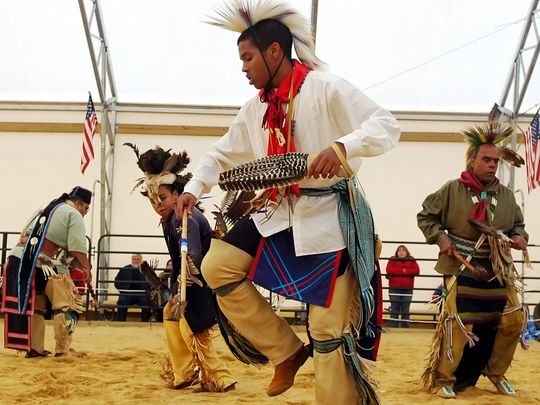TRENTON – A South Jersey-based American Indian tribe said Thursday it has settled a six-year court fight with the state, securing both official recognition and $2.4 million for cultural and economic development programs.
The 3,000-member Nanticoke Lenni-Lenape Tribal Nation said the settlement will restore its access to federal grants and will help tribally owned businesses, among other benefits.
It also will be able to market traditional crafts as “American Indian-made.”
Under the settlement, the state acknowledged it has officially recognized the Bridgeton-based tribe since 1982, said Attorney General Gurbir Grewal.
The tribe contended the administration of former Gov. Chris Christie improperly repudiated its official status in 2011 due to an “irrational belief that state recognition leads to federal gaming rights.”
It said the earliest challenge to its legitimacy “coincided with the period of Donald Trump’s ownership of Atlantic City casinos and the industry’s misplaced fear that acknowledging tribes’ continuing existence could lead to competition.”
Under the settlement, the tribe “disclaims any interest in casino gaming rights,” the Attorney General’s Office noted in a statement.
“As a result of this settlement, there is no more ambiguity regarding the tribe’s official status and the tribe’s forward progress cannot be hampered by any state-related recognition issues,” said Grewal.
He said the state, which made no admission of liability, has agreed to notify “all relevant state and federal agencies of the tribe’s official recognition status.”
Mark Gould, the tribe’s principal chief, described the fight in state and federal courts as “lengthy, costly and sad.”
The tribe’s challenge cleared a hurdle in October 2016 when a federal judge in Camden denied the state’s motion to dismiss the lawsuit.
The settlement was reached as the judge considered the tribe’s motion for summary judgment, said an attorney for the tribe, Greg Werkheiser of Cultural Heritage Partners PLC.
He said the settlement also reaffirms the status of the smaller Powhatan Renape and Rampough Mountain tribes in New Jersey.
The court case also “should put states on notice that even the most vulnerable tribes have constitutional rights to due process and equal treatment when it comes to official acknowledgement of their identity,” Werkheiser said.
He said 61 other tribes in the nation have state-only recognition.
That status is “most prevalent in 16 states where European settlers first encountered indigenous peoples, but where violence, disease and 20th century government-sanctioned racial discrimination took a heavy toll on Native populations and the ability of the tribes to prove their modern existence,” he said.
Jim Walsh: @jimwalsh_cp; 856-425-5711; 856-486-2646; jwalsh@gannettnj.com











